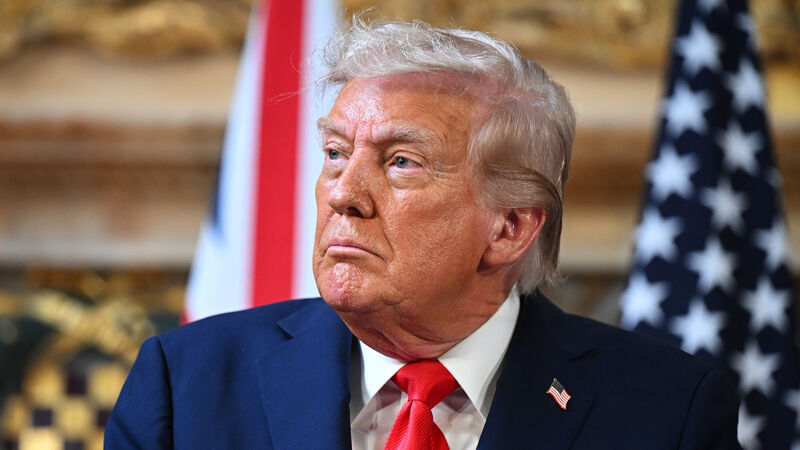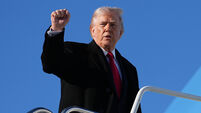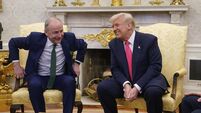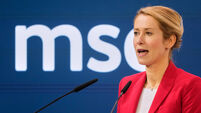Harris says EU-US deal ‘made absolutely clear’ pharma tariffs capped at 15%

Donald Trump has announced further import tariffs (Leon Neal/PA)
It was “made absolutely clear” that any new US tariffs on EU pharma exports would be capped at 15%, the Tanaiste has said, after President Donald Trump announced a new 100% tax on the goods.
The move, which comes as part of a suite of new measures to take effect on October 1, casts uncertainty over a previous framework agreement between the EU and the US.














